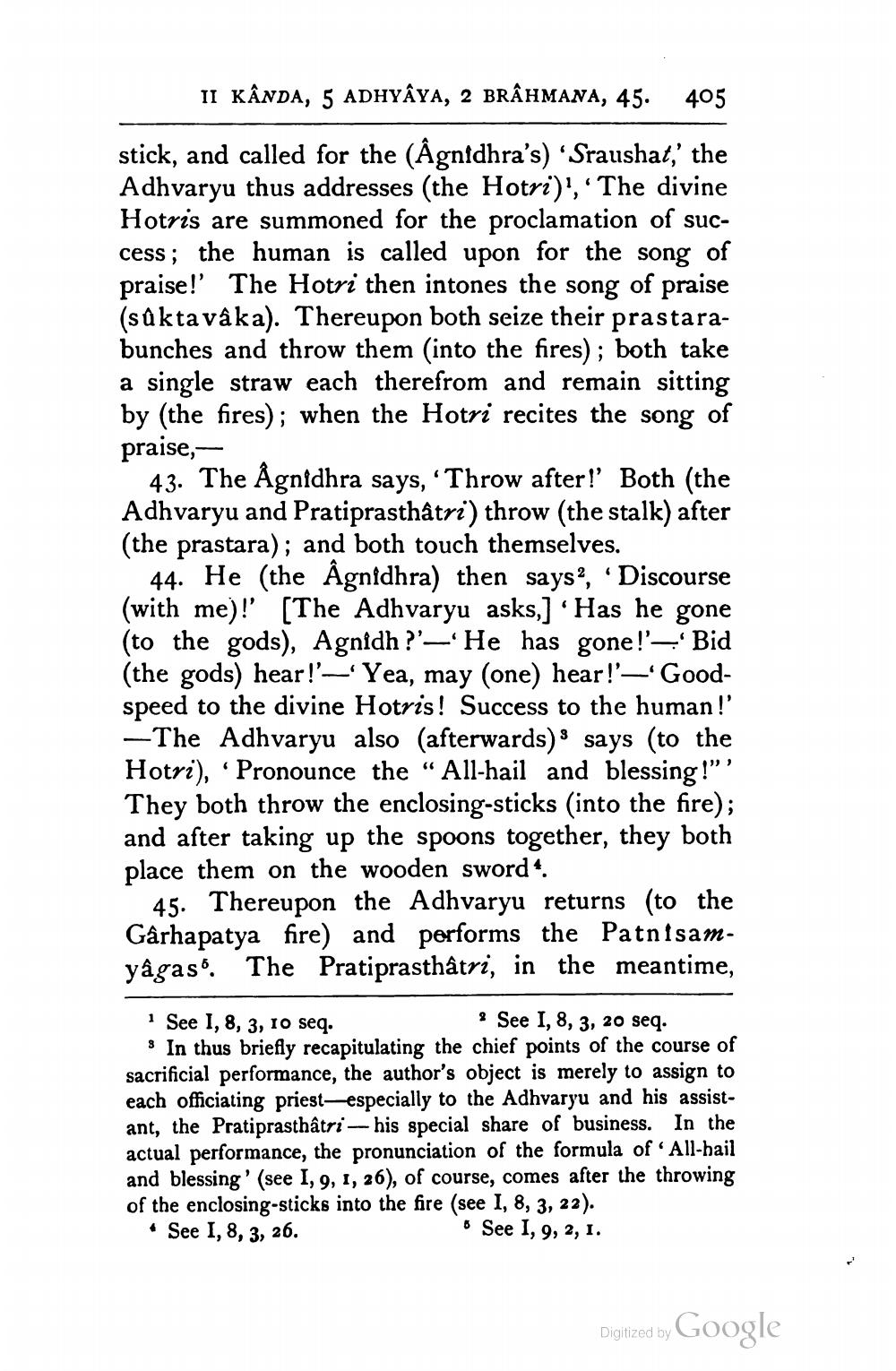________________
II KÂNDA, 5 ADHYAYA, 2 BRÂHMANA, 45. 405
stick, and called for the (Agnidhra's) Sraushat,' the Adhvaryu thus addresses (the Hotri)', 'The divine Hotris are summoned for the proclamation of success; the human is called upon for the song of praise!' The Hotri then intones the song of praise (sûkta vāka). Thereupon both seize their prastarabunches and throw them into the fires); both take a single straw each therefrom and remain sitting by (the fires); when the Hotri recites the song of praise, -
43. The Ågnidhra says, 'Throw after!' Both (the Adhvaryu and Pratiprasthâtri) throw (the stalk) after (the prastara); and both touch themselves.
44. He (the Agnidhra) then says?, ‘Discourse (with me)! [The Adhvaryu asks,] •Has he gone (to the gods), Agnidh ?'—' He has gone!'- Bid (the gods) hear!'-'Yea, may (one) hear!'— Goodspeed to the divine Hotris! Success to the human!' - The Adhvaryu also (afterwards) says (to the Hotri), Pronounce the “All-hail and blessing !"' They both throw the enclosing-sticks (into the fire); and after taking up the spoons together, they both place them on the wooden sword.
45. Thereupon the Adhvaryu returns (to the Gârhapatya fire) and performs the Patnisamyâgas. The Pratiprasthâtri, in the meantime,
1 See 1, 8, 3, 10 seq.
See , 8, 3, 20 seq. 8 In thus briefly recapitulating the chief points of the course of sacrificial performance, the author's object is merely to assign to each officiating priest—especially to the Adhvaryu and his assistant, the Pratiprasthâtri ---- his special share of business. In the actual performance, the pronunciation of the formula of All-hail and blessing' (see 1, 9, 1, 26), of course, comes after the throwing of the enclosing-sticks into the fire (see I, 8, 3, 22). . See I, 8, 3, 26.
See I, 9, 2, 1.
Digitized by Google




